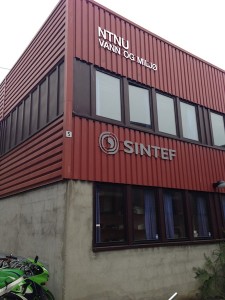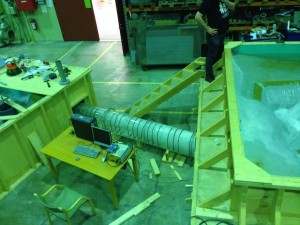Today’s visit to the Center for Environmental Design of Renewable Energy
 (CEDREN) offered us a deeper look inside the Norwegian hydropower we had heard so much about. As we had learned from many of our other speakers, Norway receives around 99% of its electricity from hydropower. The geography of Norway makes it an ideal place to utilize water as an energy source. In addition to providing electricity, the enormous number of reservoirs within Norway enable it to have the potential to store up to 84 TWh of energy, over fifty percent of Europe’s total storage capacity.
(CEDREN) offered us a deeper look inside the Norwegian hydropower we had heard so much about. As we had learned from many of our other speakers, Norway receives around 99% of its electricity from hydropower. The geography of Norway makes it an ideal place to utilize water as an energy source. In addition to providing electricity, the enormous number of reservoirs within Norway enable it to have the potential to store up to 84 TWh of energy, over fifty percent of Europe’s total storage capacity.
The role of CEDREN is to deliver knowledge about renewable and sustainable energy production, communicate their findings and results. In order to accomplish these goals, collaboration is key. This goes back to the idea we have heard time and time again, that no country is going to be able to survive on their own in the transition to renewable energy sources. Our speaker explained to us a collaboration between China and Norway, FutureHydro, which enables knowledge about hydrology to be shared between the two nations.
Another aspect of renewable energy CEDREN works on is the environmental impacts. CEDREN works on the environmental impacts of wind power, specifically on Smøla, which we had already heard a great deal about during our visit to the Smøla wind farm, the environmental impacts of power transmission and the environmental impacts of hydropower. With the environmental impacts from hydropower, one of the important factors researchers at CEDREN is the issue of changing flows in the river, hydropeaking, which can be devastating for the ecosystem.
After the lecture from our veryknowledgeable speaker, we had the amazing opportunity to tour the CEDREN lab and get the chance to see first hand some of the topics they are researching.

One of the models used to study hydropower at CEDREN.

